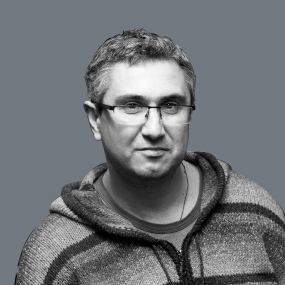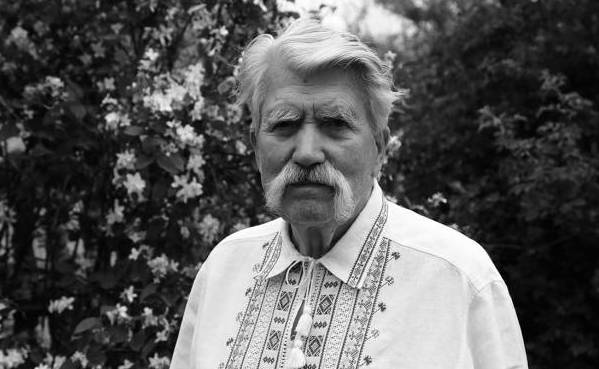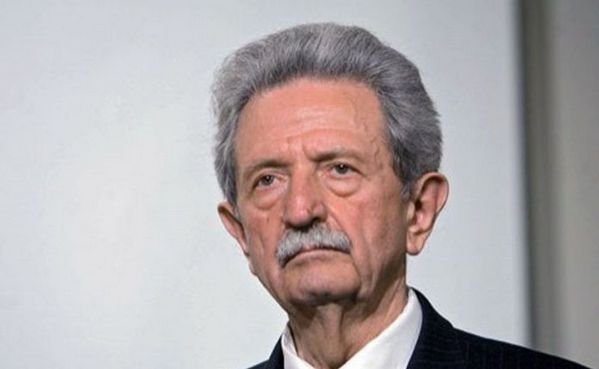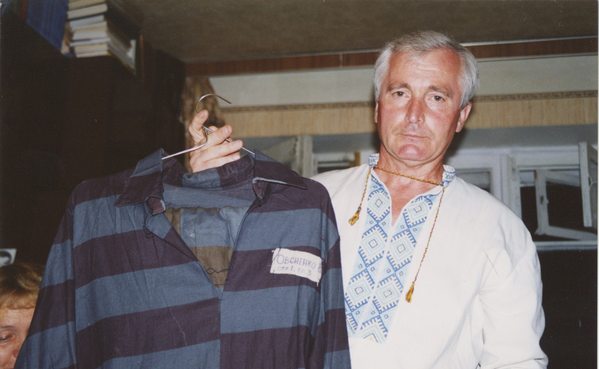Mykola Rudenko
Rudenko Mykola Danylovych (b. 19 December 1920, Yuryivka village, Lutuhynskyi district today, – d. 1 April 2004, Kyiv).
When he was six, Mykola became a half-orphan – his father died in a mining accident. A year after that, a stone hit the boy's eye during a children's fight, and he couldn't see with it for a long time. As a child, he witnessed "rozkurkulennia" and the famine of 1933.
In 1939, Rudenko enrolled at the Taras Shevchenko Kyiv State University to study philology. He studied for two months only though, – the war was imminent and the freshmen were called up. Despite the revealed blindness, he went off to war voluntarily. "If I had no military and trench lines experience, I wouldn't have returned from the death camps, not unlike my brothers, Vasyl Stus or Oleksa Tykhyi," he wrote in his memoirs later.
Rudenko was seriously injured in the war, and he survived in beleaguered Leningrad. He came back with two orders, six medals, and a collection of poems "From the March". Thus, in 1946, he was accepted to the Union of Writers and even became the secretary of the party organization of the Union of Writers of Ukraine. When Mykola Danylovych stood up for the repressed Zinaida Tulub and refused to support the killing of the Jewish aristocracy campaign, a bitter conflict between him and the head of the Union of the time, Oleskandr Korniichuk, followed. In 1950, Rudenko gave up all his posts, thus shedding all of the Soviet elite privileges.
Later, Rudenko re-analyzed Marx's "Capital" and shared his vision of the problem in his philosophical works "Economic Monologues" and "The Energy of Progress", then – in the novel "The Sun Formula". He wrote a letter to Khrushchov, criticizing the party system, and made a speech during an open meeting. In 1974, he was expelled from the CPSS, a year later – from the UWU. He sold his car and summer house to get at least something to live on, and found a job as a night gatekeeper.
In his search for justice Mykola Rudenko kept in touch with Russian dissidents and Andrii Sakharov in particular. He became a member of Amnesty International. On 18 April 1975, he was arrested for the first time, but then, during the investigation, was released as a veteran. It was a miracle he wasn't sent to a mental institution.
Yet his path was explicit. On 9 November 1976, Rudenko held a press-conference for foreign journalists in Sakharov's apartment in Moscow, where he declared the establishment of the Ukrainian Helsinki Group. That same evening Rudenko's apartment in Pushcha Vodytsia was showered with bricks.
On 23-24 December 1976, Rudenko's place was searched, and thus the planted 39 US dollars were discovered. He was sentenced to seven years in maximum security penal colonies and five years in exile. Rudenko's op-ed articles, artistic works, and oral expressions were declared defamatory, and all his books were excluded from book-stores and libraries.
After the release in December 1987, the Rudenkos sought a permit to move to Germany, and then – to the US, where Mykola Danylovych worked for "Radio Liberty" and "Voice of America" radio stations. He led the foreign office of the UHG, and later – of the Ukrainian Helsinki Union. In 1988, the Philadelphia Educational and Research Center declared Rudenko the "Ukrainian of the Year" – for an unwavering endurance during the protection of national rights of Ukrainian people and culture.
In September 1990, Rudenko was rehabilitated. He spent his last years in Kyiv, and died on 1 April 2004. He was buried at the Baikove cemetery.

Повне інтерв'ю читайте у книзі "Дисиденти".







